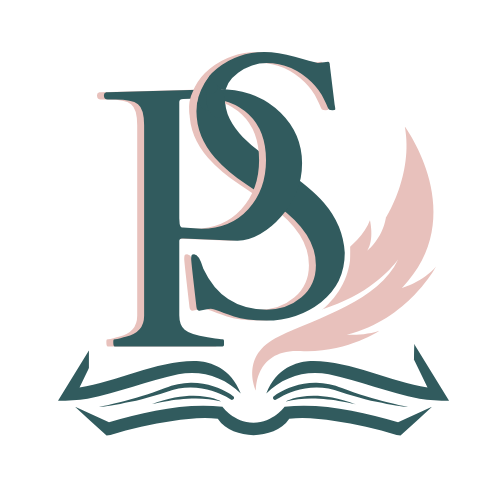The editing process can make you feel vulnerable, confused, exasperated – but it doesn’t have to.
The key to making sure you get the most out of hiring a professional editor, to make it a pleasant (dare I say, enjoyable) experience, and to make sure that is worth your investment: find a good book editor, one that is the right fit for both you and your book.
But that is so much easier said than done.
When you first set out to look for an editor, you will want to do some research to determine if a particular editor is worth your consideration.
Once you have found a handful of possibilities, the best way to determine if an editor is the right fit is to get a free sample edit (and a consultation if they offer one).
Never hire an editor that does not offer free sample edits. As an author, you want to make sure that the editor has your best interests in mind and understands your goals for your work. As an editor, I enjoy the opportunity to get to know the client and their work to make sure that I am the best person to help them succeed.
So, you’ve done your research, you get a free sample edit, and maybe you also get on a call with them, but how do you actually know if it is a good fit?
How do you differentiate between editors and choose the one that’s right for you?
Well, we are going to dive into the essential things you need to consider in order to make this decision. These are eight questions you should ask yourself before hiring a professional editor.
Knowing the answers to these can help you decide if they are the right fit for both you and your book.
I want you to feel confident in your investment, know you are making the best and most informed decision possible, and decide how to make the right choice for both you and your book.

1. Is the editor knowledgeable and experienced?
Before you hire an editor, always check their credentials. They should be both knowledgeable (i.e. have the appropriate education) and/or be experienced in the field.
You should also consider finding an editor who is relevant to your particular genre of writing. An editor who specializes in your genre will have the expertise necessary to make sure your book meets standard requirements and stays up to date with genre conventions.
They will also be able to help you decide when to conform to reader expectations and when it is appropriate to deviate from them, making sure your book is successful.
All editors should have a love for continued education. The book industry is constantly evolving – from written language, readers’ expectations, to market trends, etc. For example, the most recent edition of the Chicago Manual of Style (the style guide for copy editors) now includes the proper ways to punctuate text messages within a manuscript, something that clearly wasn’t relevant in earlier versions.
Ultimately, the book industry is forever evolving and so is narrative craft.
Editors are professionals within the industry. Not anyone can just decide they want to be an editor and start offering services. (Unfortunately, this does happen a lot.)
Before making the investment in hiring a professional editor, check their credentials, make sure they are knowledgeable and experienced, so you get the quality services you deserve.

2. Does the editor have clearly defined expectations for working with them?
Every editor has their own process to how they work and you want to make sure you understand exactly what you are getting from them. Upfront communication is so important so that both editor and author have clearly defined expectations about every part of the process.
Transparency ensures that there are no surprises and everyone is happy – which is what we all want.
Have the editor explain exactly what their service entails: what issues they are looking for and what kind of feedback you will receive.
You can learn about different types of editing and what to expect in this post here.
Side note: If you hire someone, always have a signed contract between you and the editor so that these expectations are defined and agreed upon.
But before you make the decision to hire, you want to get a good understanding of what their work method is like and what you can expect during the process.
You need to know exactly what you are paying for, how long the project will take, and how you can reach the editor if you have any questions during or after the editing services.
Make sure you take the time to talk and get to know them, ask all the questions you have, and get a clear picture of what their editing process is like.

3. Does the editor seem to have an organized, thorough process?
Like any professional in any industry, your editor should have a detailed and organized process from start to finish. This includes a solid plan of action that shows you exactly what the services will provide, how much it will cost, and how long they expect it to take.
They should have an easy way to communicate with them, keep you updated, securely store their files, manage their projects, and track their progress.
Contracts should have this plan laid out for you in detail so that you know exactly what you are agreeing and committing to.
Having organized systems means that they can give their best work and be as thorough as possible.
While every editor has their own style and system that works well for them, they should still remain flexible to allow for your own wants and needs as well.
Ask if they have a style sheet template they wouldn’t mind going over with you so you know exactly how they work. And be sure to ask if they complete multiple read throughs to make sure nothing is missed.
4. Does the editor communicate in a way that is respectful?
The editor-author relationship is crucial to making a story be its best. This relationship is built on trust and clear communication.
You should never be made to feel judged or criticized – the editing process is collaborative. Together, author and editor have the same collective goal: to bring your best possible book to your readers.
When you are getting to know the editor and reflecting back on conversations to answer this question, think about whether the editor seemed genuinely excited about your story, offered constructive feedback, or made suggestions in a way that was positive and encouraging to your growth. An editor who values the relationship will be able to offer suggestions to issues with care and respect.
You want an editor that prioritizes good communication so you know when you can expect to hear from them. Ask them how they deliver their work and how they keep you updated throughout the process, especially for longer manuscripts.
As a writer, it can be a time of anxiety and doubt waiting to hear back from an editor, particularly if the project takes a few weeks to complete. So you want an editor who prioritizes good communication and is easily reached (in a standard business time frame).
An editor’s ability to see from a reader’s perspective and from a professional in the industry is what makes them an asset to your book.
Their ability to show admiration for your hard work and interest in your success is what makes them the right fit for you.

5. Does the editor understand your goals and vision for the manuscript?
A good editor will make an effort to get to know your goals and intentions for your book and writing career.
Your success is their success and they will want to help you reach this to the fullest extent.
Your goals and concerns for your book are what guides the editor’s process in how they are best able to support you. The right editor for you will be truly invested in helping you and your book succeed.

6. Does the editor objectively justify the changes they suggest?
This is a question you should ask yourself when reviewing the edits made on your sample.
You should always get a sample edit before hiring. This is the best way to get a feel for what kind of feedback they give.
If you are interested in getting a free sample edit from me, you can inquire here.
An editor should never change an author’s expression without first looking it up. It is not our job to take your hard work and rip it apart.
An editor only wants to help your book grow to be the best version of itself. A good editor will always have justifications for the changes they suggest. It will never be just because it sounds better or because they like it one way versus another.
They will not only make the change but also explain to you how this makes the writing more clear and effective.
For copy editing, this can mean referencing an authoritative source, like the Chicago Manual of Style, as the guiding principle behind the suggested change.
For developmental editing, this can mean providing you with specific examples and explanations for where and how improvements can be made.
A good editor will always use discretion when making changes, rather than simply because it is a rule.
They will consider the author’s voice and intentions, as well as how the writing will be perceived by the reader, before concluding that a change is preferable or it should be left alone.
7. Does the editor seem to care about making you a better writer?
A good editor will be invested in the writer’s craft. They do this by not just making changes but by telling writers why the changes are being made.
They will include references or links to external sources if they notice that a writer has a particular tendency.
They will also explain how the changes make the manuscript better.
They may refer to examples, such as other well known story tropes.
You’ll know you have found the right editor for you when they are willing to collaborate with you and not only want to help you improve your book but also want to help you improve your writing craft as well.

8. Does the editor have your audience in mind?
A good editor will always work from the readers’ perspective, who ultimately decide the success of a book.
As a professional, they will help you mediate industry standards and readers’ expectations.
This is one reason why finding an editor who specializes in your genre can be really advantageous.
The right editor for your book will be able to help you bridge that gap between writer and reader so you can create the most engaging experience possible.
Hopefully this has helped you get some insight into how to choose the best editor for you and your book. Use these questions as a guide for when you are deciding who you should hire.
Make sure you get a free sample edit and talk with them so you can get to know them and how they work.
Then you can reflect back and answer these questions to make your decision.
Don’t get discouraged if it doesn’t feel like the right fit for you. There are many editors out there and they all have their own unique style and process just like writers do.
When you do find the best choice for you and your book, you’ll know it!
Thinking about hiring an editor?
Get a Free Sample Edit






Leave a Reply